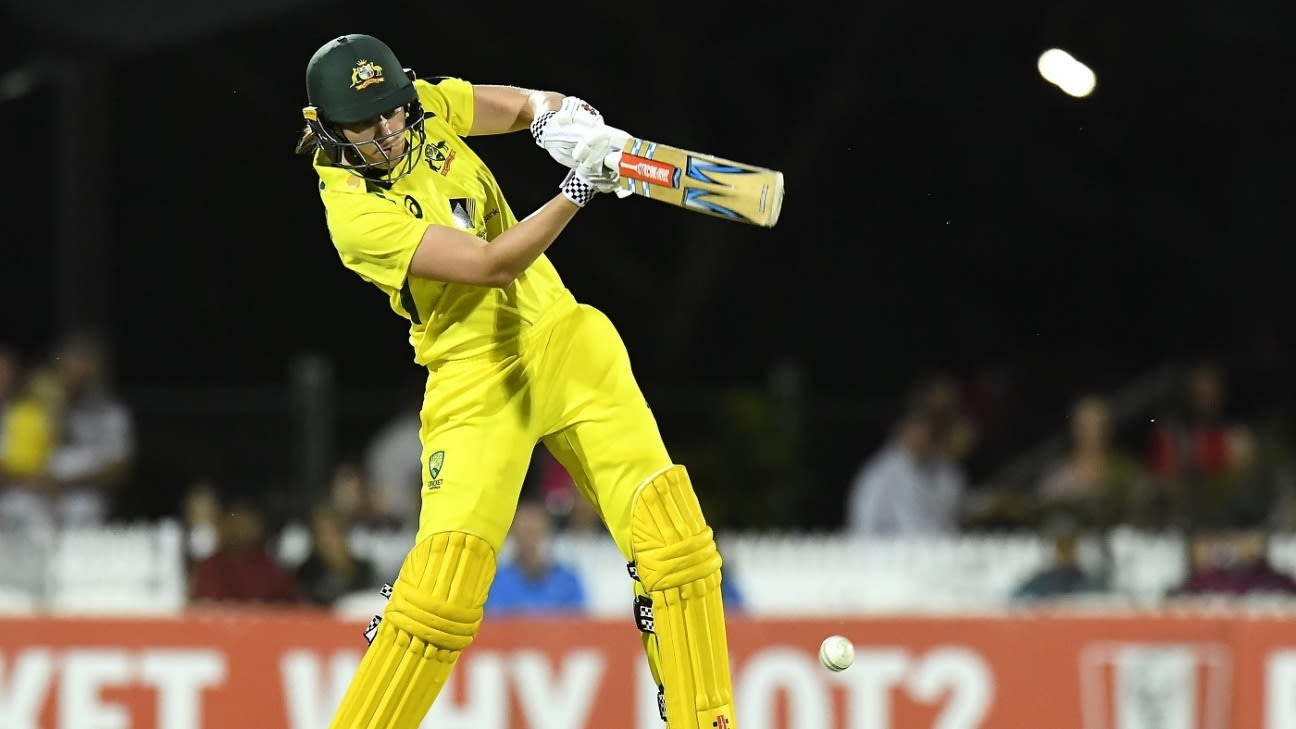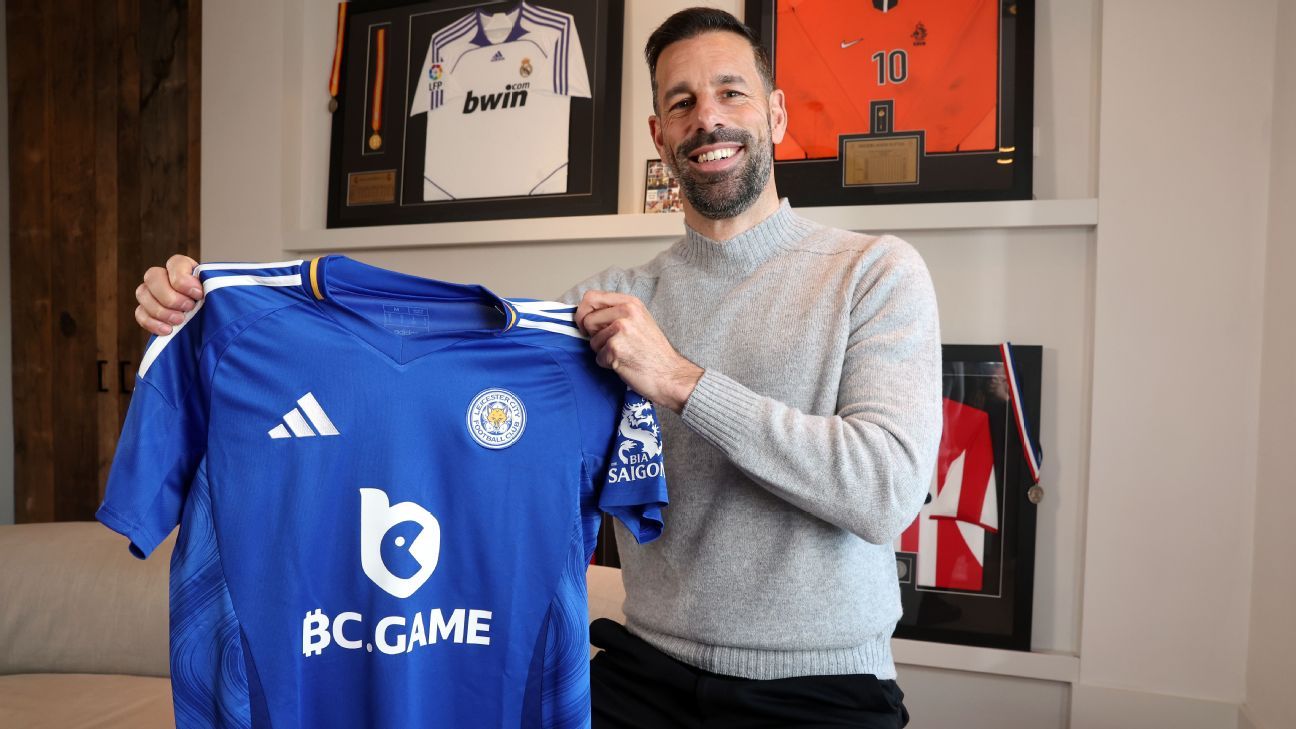
Was the delivery to Nicola Carey a no-ball? You aren't going to find a unanimous view (although it's only what the umpire decided that matters). Was Australia's victory in Mackay a remarkable chapter for a brilliant team? Of that there is little doubt.
Beth Mooney, who was on the field from first ball to last, played the innings of her life. They needed some fortune to finally get the job finished, but she produced a textbook display of calculating a run chase from a long way out. As the latter stages unfolded, Meg Lanning revealed they had wanted to get it down to 90 off the last 10; in the end they needed 87.
Yet while Mooney was the standout statistically, it was the supporting cast that was just as significant. Australia were without three first-choice players - Rachael Haynes, Megan Schutt and Jess Jonassen - with another likely starter in Tayla Vlaeminck sidelined and Georgia Wareham injured early in the game and unable to bowl. The talk before the series had been Australia's much-vaunted depth. Here it was, again.
In the opening match teenagers Darcie Brown and Hannah Darlington shared six wickets and now in the second game Tahlia McGrath, playing her seventh ODI, and Carey who has precious little chance to show her batting credentials at the top level combined with Mooney to lift Australia form 52 for 4.
McGrath, who made her debut in 2016 before having three years away from the side, had an outstanding all-round day - becoming the seventh Australian female player to take three wickets and score a half-century in an ODI - with her bowling helping cover the expensive performances of Ellyse Perry and Darlington.
She had an underwhelming 2020-21 season with the bat (averaging 16.21 in the WBBL and 27.80 in the WNCL) but Australia have shown faith. It was the early stages of McGrath's innings which were key to the revival with Mooney yet to find fluency having fought to survive the new ball. When the fifty partnership was raised, McGrath had 34 of them and finished with two-thirds of the 126-run stand.
"A lot of credit has to go to T-Mac," Mooney said, "she came in and looked like she was batting on a completely different wicket. Just goes to show in the investment you make in players like T-Mac, think she has evolved her game massively in the last couple of years."
"Motty [Matthew Mott] made the comment before I went out that this is your opportunity, you haven't really had a good crack at it," McGrath said. "So I just had to keep us as close to run rate as possible so left with no choice but to play like that and luckily it came off.
"For me it's about being brave in my ability and that's something, again, that the Australian team is really good at, making sure that you are fearless and back yourself. It's believing in my ability and showcasing what I can do."
When McGrath fell, pulling a short delivery to fine leg, the job was far from done with Australia still needing 97 off 69 balls and an injured Wareham, herself an ever-improving batter, unlikely to be able to play a role. But up stepped Carey with the most significant innings of her international career - she had never previously faced more than 22 balls and it was just the tenth time in 19 ODIs that she had batted - which included a horrid hit to the helmet from a Jhulan Goswami beamer in the dramatic final over. Australia's middle order are sometimes left kicking their heels. They were needed on this occasion and delivered.
The contrast between how Australia responded to pressure and how India, albeit hampered by a wet ball, couldn't close out a game they had dominated for so long was stark but also a reminder of how India's players are being expected to developed with one hand tied behind their back. The role of the WBBL and the strong WNCL should not be understated in Australia's success.
The likes of Carey, who averaged 47.50 for Tasmania in the WNCL last season after a poor WBBL for Hobart Hurricanes, and McGrath bat high up the order so know how to build innings and the players are exposed to pressure situations. Only English cricket currently comes close to providing a comparable platform in the female game.
"Experience is pretty valuable and I've played a lot of cricket - not so much at this top level - so was backing myself that it was just another game," McGrath said. "We were really calm, really clear about what we needed to do. We have so much belief in the squad that no matter who is at the wicket we can do a job."
Someone, eventually, will beat this Australia side. But they will have to play the perfect match.
Andrew McGlashan is a deputy editor at ESPNcricinfo















 Phone: (800) 737. 6040
Phone: (800) 737. 6040 Fax: (800) 825 5558
Fax: (800) 825 5558 Website:
Website:  Email:
Email: 






